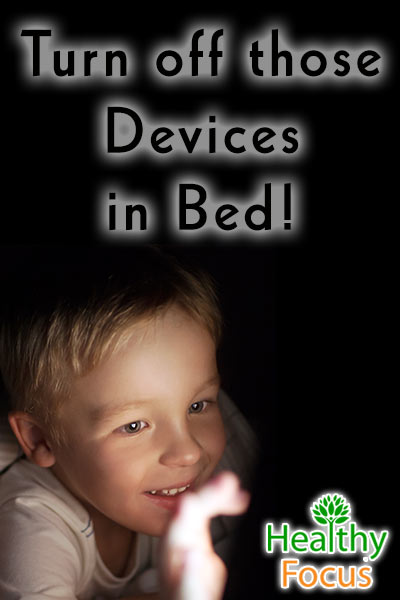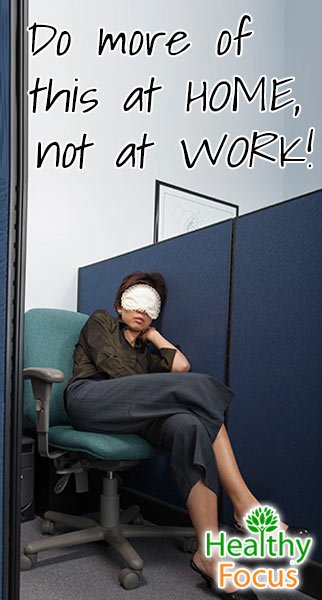Last Updated on March 8, 2018 by Marc Seward
I Can’t Sleep
If you are reading his article, it is likely that you know the feeling. You have to be up at 6:45 and it is already 4:30 and you haven’t managed a wink. You are desperate for some sleep before the sun comes up and your alarm goes off.
But try as you may, you simply cannot get to sleep and the more you worry about it, the more restless and anxious you feel. I know the feeling well and so do many other people. Estimates suggest that around 30 or 40% of Americans experience insomnia symptoms every year. For some people, insomnia can be temporary.
However, for many others, the condition can last a very long time and have some very serious repercussions during the daytime. In very serious cases, insomnia can even lead to severe health conditions.
What is Insomnia?
Different people have different sleeping needs so insomnia is not defined in terms of the amount of hours that you manage to sleep each night. Instead, insomnia is characterized by the inability to get as much sleep as you require to wake up in the morning feeling well rested and properly refreshed.
Symptoms of insomnia include:
• Difficulty falling asleep even when you feel tired.
• Waking up during the night and not being able to get back to sleep.
• Waking too early.
• Feeling unrested in the morning.
• Problems concentrating during daytime.
• Daytime irritability and fatigue.
Causes of Insomnia
If you suffer from insomnia, it is very important that you identify the underlying causes in order to start addressing the issue. Around 50% of insomnia cases can be attributed to emotional issues like stress, depression, grief or anxiety. Other contributory factors may be simple bedtime routines or daytime habits while physical health can also play a part.
In some cases, the causes are obvious, especially when temporary insomnia is brought on by exams, work issues or a relationship break up. When it comes to chronic insomnia however, the causes are not as easy to identify though it is usually related to underlying medical or psychological problems.
- Psychological causes
Depression and anxiety are the two most common reasons for chronic insomnia. Other potential causes may be life stress, worry, anger, grief and trauma. - Medical Causes
Certain physical conditions can cause or play a role in chronic insomnia including allergies, asthma, kidney disease, cancer and acid reflux as well as chronic pain. - Medications
Certain prescription drugs may cause insomnia including steroids, antidepressants, blood pressure medication and thyroid medications. As well as prescription drugs, some over the counter medications can also affect your sleep including certain cold or flu medicines and pain killers like Excedrin which contain caffeine. - Other sleep disorders
Insomnia may be a symptom of another sleep disorder such as sleep apnea. - Other causes
Other causes that are within your power to change may be related to your lifestyle and sleep habits. These include drinking coffee and other caffeinated drinks in the evening, watching TV or using a tablet in bed or eating dinner too late. Your bedroom may also not be overly conducive to sleep; maybe it is too bright or too noisy and generally not sufficiently comfortable.
Strategies to Help You Sleep
If you are suffering from insomnia, you should try to identify the reason and then adopt some of the following strategies that may help you to overcome the problem.
Improve Your Bedtime Routine and Bedroom Environment
- Try to make sure that your bedroom is cool, dark and quiet as noise, bright light and heat can hinder your sleep. You can try earplugs to block out noise or a sleep mask to block external light.
- Make sure your mattress is as comfortable as possible.
- Avoid rigorous and stimulating activities before bed. This includes work, exercise and important discussions which stimulate your mind too much and may cause worry and stress preventing you from getting to sleep.
- Instead of stimulating activities, try some lighter activities like listening to gentle music reading or listening to a light-hearted audio book.
- Keep your lights low immediately before bedtime.
- Turn off any bright screens at least an hour before bedtime. I know his is easier said than done but the bright light from tablets, smartphones or computer monitors can suppress the body’s melatonin production which in turn disrupts your sleep.
- Instead of staring at a screen, try listening to an audio book or a podcast with your lights dimmed.
- Move all clocks out of view or remove them from your bedroom altogether. Many people find themselves clock watching through the early hours and getting more worked up about their lack of sleep.
New Habits
- Avoid naps during the daytime if possible or limit them to 30 minutes or so earlier in the day.
- Avoid caffeine, nicotine and alcohol especially during the evening. Alcohol interferes with sleep quality even though it makes you feel sleepy. Caffeine and nicotine are both stimulants that will stop you from getting to sleep.
- Try sticking to a regular sleep routine by getting up and going to bed at the same time each day even at the weekend.
- Exercise regularly as this not only benefits your general health but also helps you to sleep more soundly. It may take a while but aim for at least 30 minutes of exercise each day.
- Don’t eat large, rich meals too close to bedtime because rich, fatty and spicy foods take longer to digest and may cause heartburn.
Associate Your Bedroom with Sleep and Nothing Else
- Try to use your bedroom only to sleep in and not for any other stimulating activities (apart from sex). Don’t watch TV, work or use your laptop in the bedroom. If you associate it with seep, your brain and your body will be more likely to drop off more readily at the right time.
- If you really can’t sleep or get back to sleep, get out of bed, leave the bedroom and do something relaxing like reading in another room. Try not to associate your bedroom with sleeplessness.
Relaxation Techniques
You can try to unwind in the evening by using a few effective relaxation techniques like yoga, meditation and breathing exercises. These techniques can help relieve physical tensions and help your mind to relax.
- Progressive muscular relaxation
A friend of mine taught me to do this at a time when I was suffering from chronic insomnia. Basically you lie down in bed and start at the bottom of your body with your feet. You should tense the muscles in your feet for around ten seconds then relax. Continue upwards through the body working every muscle group until you reach your shoulders and your head. - Deep abdominal breathing
Lie back in bed, relax and breathe deeply making sure that you involve your chest, stomach and lower back region. Don’t forget to breathe in through the nose and exhale through the mouth. - Meditative techniques
There are many meditative techniques that can help you relax but one that I found especially helpful was to imagine you were lying on the beach near the sea. Imagine the sea lapping over your feet slowly for 30 seconds or so and then focus on each part of your body as the water starts flowing over you. Focus on each area of your body individually. I am often asleep before the water gets to my shoulders.
Essential Oils for Insomnia
A lot of people who have had trouble sleeping swear by the soothing qualities of essential oils. There are various essential oils that are known for their relaxing effects, their ability to calm the nerves and aid sleep.
Among the favorite and most effective are lavender essential oil, chamomile essential oil and sweet marjoram. There are many other effective oils for insomnia and you may need to experiment with these oils in order to find the one that is most effective for you.
There are several ways that you can use essential oils to help you sleep better including the following:
- Use a diffuser in your bedroom and inhale the soothing vapors.
- Blend your chosen oil with a carrier oil and massage it into your temples, neck and chest and feet before bed.
- Add 4 or 5 drops of essential oil to your tub and take a relaxing bath before you go to bed.
- Add a few drops of your chosen essential oil to your pillow before you go to bed.

Herbal Remedies for Insomnia
Because prescription sleep medication can cause unwanted side effects and have a very high risk of addiction, they are not generally recommended. However, there are a few herbal supplements that are much safer and may prove equally effective. You should however speak to your doctor before embarking on a course of herbal supplements.
Magnessium
This helpful and vital element can aid in helping someone getting to sleep faster. Not only does it cut back on the stress hormone known as cortisol, it helps in relaxing your muscles. (1)
Valerian
Valerian is a popular herbal supplement because of its mild sedative abilities. Many people use it to help with sleep issues. The quality of supplements is known to vary however so make sure that you buy them from a reputable source.
Melatonin Supplements
Melatonin is another popular supplementary remedy that many people find effective. Melatonin is a hormone that occurs naturally in your body during the night but the supplements can cause drowsiness the day after they were taken.
Chamomile Tea
Chamomile tea has a natural calming effect and is a popular option in the evening to help people nod off at night.
Having experienced bouts of insomnia myself, I know just how stressful and debilitating it can be. Hopefully some of these techniques and treatments can help you to get into a better sleeping routine and ensure that you get the most relaxing night of sleep possible.
Good luck and let us know if these or any other tips were successful.
(1) http://www.ncbi.nlm.nih.gov/pubmed/6527092



Leave a Reply
You must be logged in to post a comment.